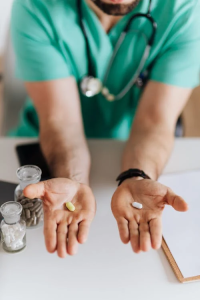Substance dependency is a serious health concern that affects an individual’s life, relationship, and overall well-being. Battling through addiction can be hard, but it’s definitely possible with the right support. Joining an addiction recovery program can be the crucial step on the path toward sobriety, offering several benefits that can maximize an individual’s chances of a successful outcome from recovery.
-
Personalized Treatment Plans:
A person joining an addiction recovery program would have a custom-designed drug and alcohol addiction treatment plan. Such programs usually possess a complete assessment of the client on the basis of individual needs and challenges. Following this assessment, the patient would get an individually customized plan which will have a mix of approaches such as:
- Cognitive-Behavioral Therapy (CBT): It is a way of thinking that helps recovering addicts, identify and change the negative thought patterns connected to his/her behavior and addiction.
- Motivational Interviewing: This approach will improve the motivation of individuals to change and override their resistance to treatment.
- Group Therapy: Through group therapy, people who are recovering from addiction can share their experiences with other members to learn from people who have been there before and develop mechanisms of coping.
- Family Therapy: Family therapy may be programmed to touch those issues related to addiction with family relationships and also show family members the way to assist the recovering person.
-
Remedy for Medical Detoxification:
For people who suffer from severe substance abuse disorders, medical detoxification is a good option. It also excludes the medically supervised withdrawal process from taking drugs through an essentially monitored treatment within healthcare professionals. Not all addiction recovery programs may have an entry to medically supervised detoxification and therefore leave individuals to cope with an awkward situation during this critical phase.
-
Continuous Attention and Monitoring:
An addiction recovery program provides a fully established environment that has a 24/7 support and supervision system. This constant support is very useful for recovering addicts, ultimately building a solid base for a lifetime of recovery. This brings structure to the life of the person, helping to create routines and develop critical life skills.
-
Healthy Coping Mechanisms Development:
Addiction typically involves unhealthy coping to manage anxiety, stress, and other emotional hurdles. Drug and alcohol addiction treatment programs are meant to empower individuals by providing skills like:
- Stress management techniques: Relaxation methods, mindfulness, and exercise can keep a person from using drugs or an addictive behavior to control stress and anxiety.
- Healthy communication skills: How to appropriately handle communication in an atmosphere that focuses on constructive conflicts.
- Social skills. Through this, recovering addicts learn social skills leading to building and managing productive relationships as a source of support in recovery.
-
Attending To Underlying Mental Health Problems:
In most cases addiction is closely connected to mental disorders such as depression, anxiety and trauma. An addiction recovery program includes within its schedule the addressing of these underlying problems with a combination of treatments that integrate more mental health treatments into the program. Such a combination will improve the overall recovery wellness in an individual.
-
Strong Supporting Relationships:
Through an addiction recovery program, recovering addicts get an option to interact with other individuals in a drug and alcohol treatment center. Sharing life experiences, rendering psychological support, and creating long-lasting friendships serve as the invaluable means to sober their long-term sobriety. These linkages allow for a true sense of belonging over the empty feeling of isolation, which makes one feel like they will not be able to recover.
-
Relapse Prevention Programs:
Recovering from addiction is marked by the occurrence of relapse at some point. The following are some strategies for relapse prevention taught in drug and alcohol treatment centers:
- Identifying high-risk situations: Recognizing and avoiding situations that may invoke cravings and/or reinforce them, leading to a possible lapse (or relapse).
- Building a relapse prevention plan: Developing the skills to create a plan to cover probable triggers and cravings.
- Learning to identify the early signs warning of possible relapse as follows: Recognizing and taking care of early signs that may lead to relapse before they escalate.
-
Physical Betterment:
Addiction takes a toll on mental as well as physical health. Examples of how recovery programs have incorporated reality into fulfilling aspect include:
- Promoting healthy eating habits: Helping recovering addicts with their eating habits would improve the overall well-being.
- Encouraging physical activity: Going to regular exercise would reduce stress and bring about physical fitness.
- Confronting any physical health conditions: Resolved all other health concerns created by substance abuse.
-
Higher Self-Esteem and Confidence Levels:
In fact, this was less evidence of false failure, rather it happened to translate into more self-esteem and confidence. Overcoming addiction is a major experience and can considerably contribute to self-esteem and confidence in an individual. Such programs help those who are recovering from addiction, learn how to rediscover value and purpose in life. They also guide the way toward achieving either personal or professional goals.
-
Improved Life:
The major advantage of enrolling in a drug and alcohol treatment center is that they help in improving an individual’s general quality of life. The contributions of addiction recovery can be summarized as fоllоws:
- Repair damage in relationships to wounds: Restore the bonds alienated from the family or friends during addiction.
- Return to school or work: Engage again into educational or job-related purposes.
- Become more productive and engaged in life: Involve socially or recreationally and even within the community.
- Experience greater happiness and fulfillment: Live life more enjoyably and meaningfully without the addiction.
Picking A Right Addiction Recovery Program
The choice of program for addiction recovery is not only crucial but a very personal decision. Here are some factors to consider while selecting an appropriate addiction recovery program:
- Types of program offered: Inpatient, outpatient, and partial hospitalization programs.
- Treatment modalities offered: Psychiatric therapy, CBT, Motivational Interviewing, group therapy, etc.
- Length of stay: Duration of program
- Cost: The program cost and insurance coverage available.
- Location: The program’s location, proximity to home and support systems.
- Accreditation and Licensing: Programs should be licensed and accredited by the appropriate authorities.
Research the various programs to find one suitable for individual needs and preferences. Consulting a healthcare professional or addiction specialist can assist persons in making this informed decision.
Joining An Addiction Recovery Program Can Be A Life-Changing Experience
An addiction recovery program provides comprehensive benefits between developing healthy coping mechanisms and support networks and 24/7 personal treatment arrangements. Even inclination toward addiction efforts becomes arduous; however, under the right conditions and with proper guidance, it can lead to a lifetime change in sober living and an improvement in quality of life.










